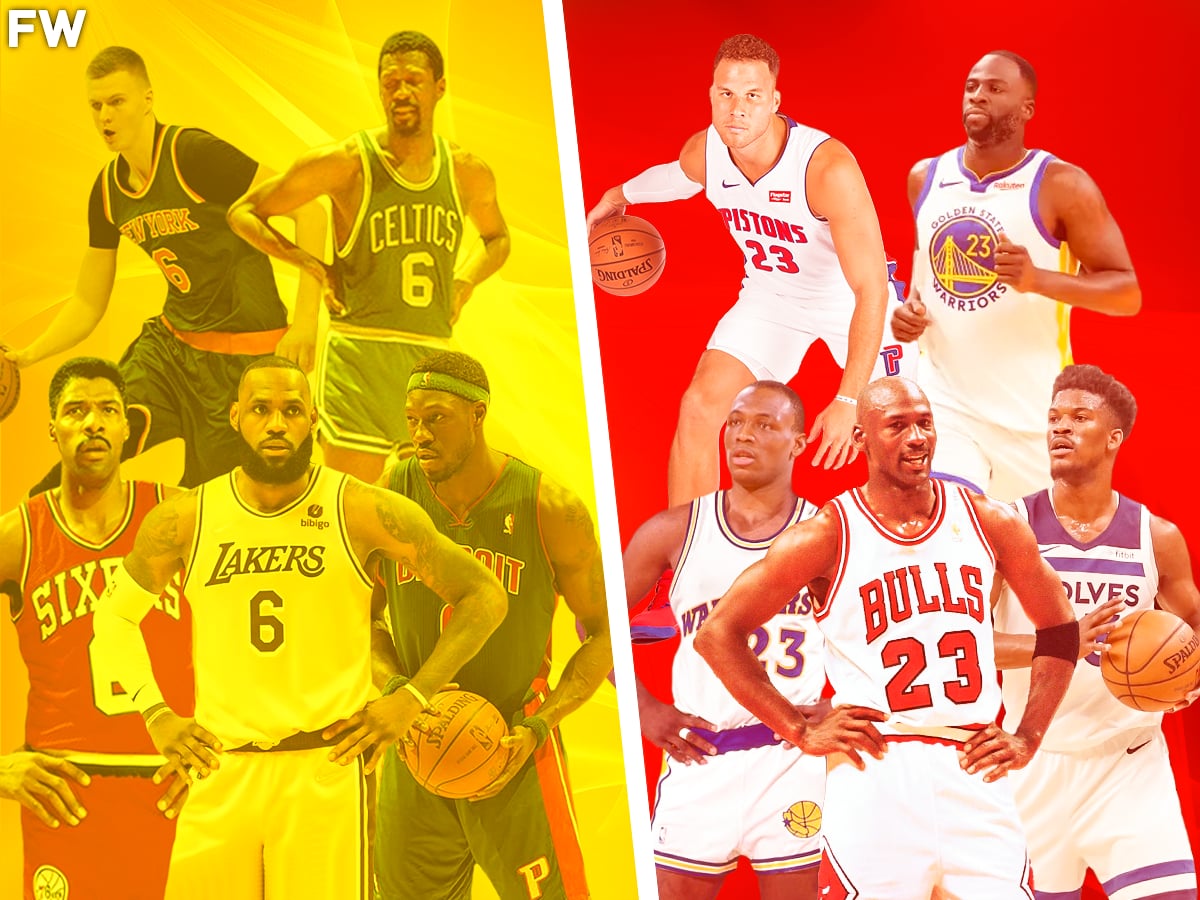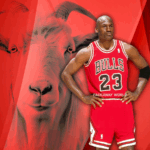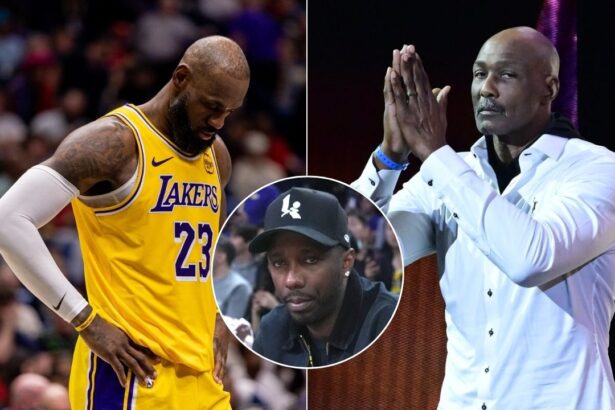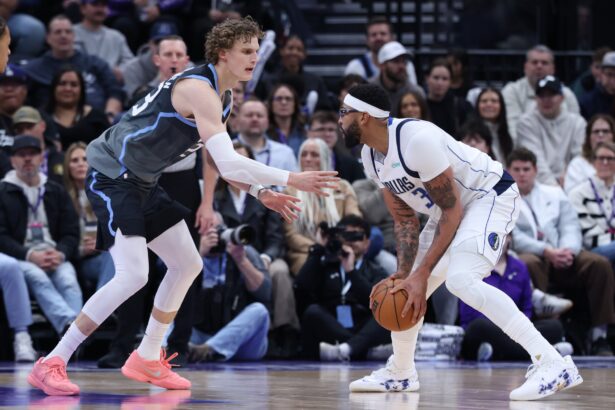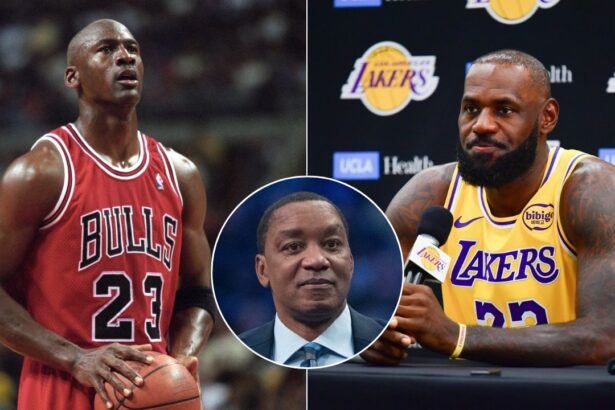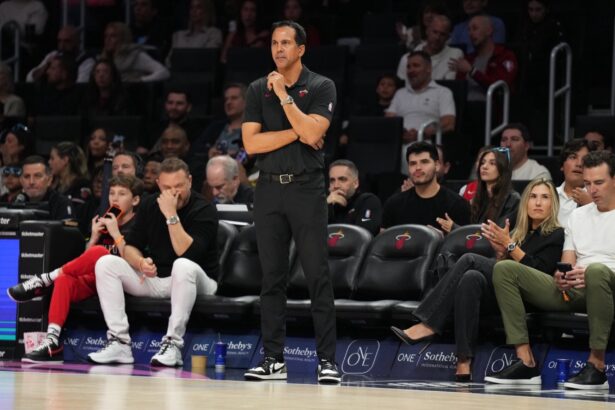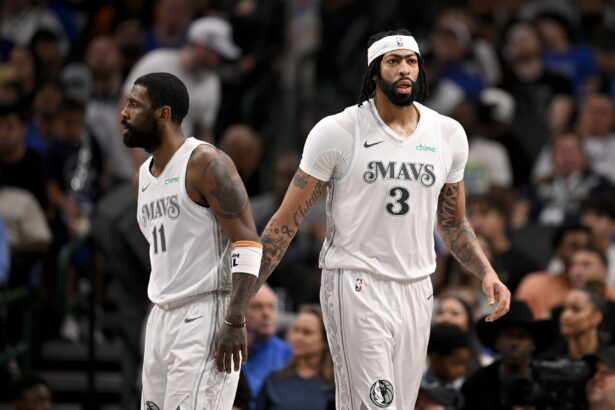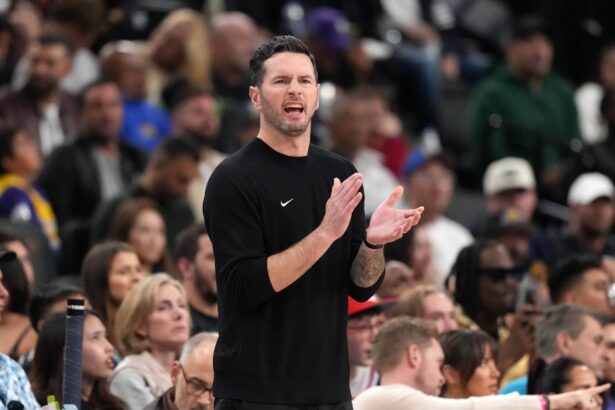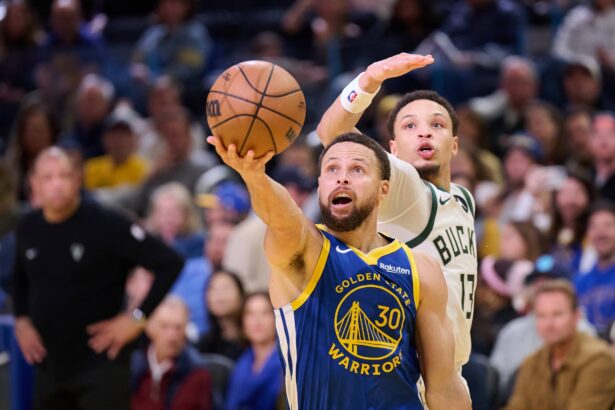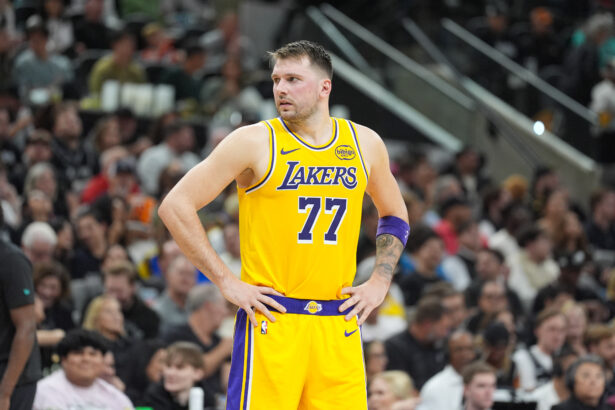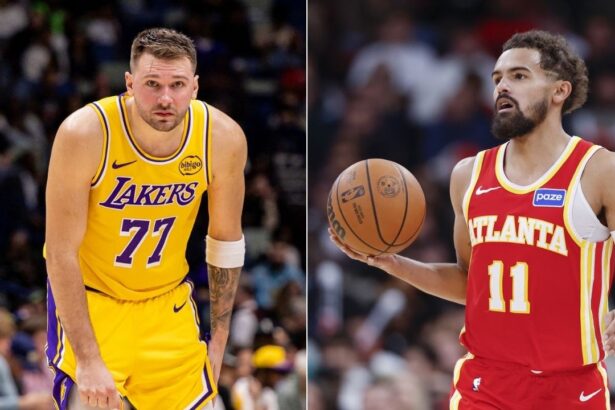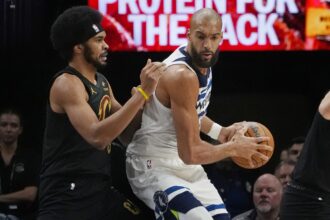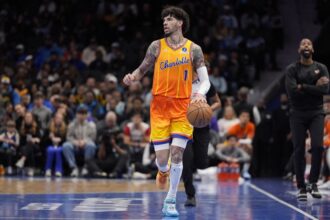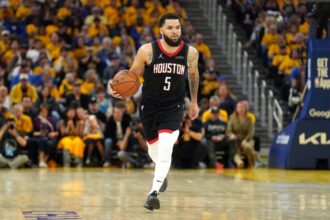Some of the greatest players in NBA history have worn the No. 6 jersey, starting from four-time NBA champion LeBron James to 11-time NBA champion Bill Russell. Similarly, the No. 23 jersey was worn by some icons including the great Michael Jordan and even modern defensive star Jimmy Butler. If we create an all-time great starting five of players who wore No. 6 vs. No. 23, who would win a best-of-7 series? Let’s find out.
All-Time No. 6 Superteam: LeBron James, Julius Erving, Kristaps Porzingis, Ben Wallace, Bill Russell
All-Time No. 23 Superteam: Michael Jordan, Mitch Richmond, Jimmy Butler, Blake Griffin, Draymond Green
This is the seven-game series between the all-time No. 6 superteam and the all-time No. 23 superteam.
LeBron James vs. Michael Jordan
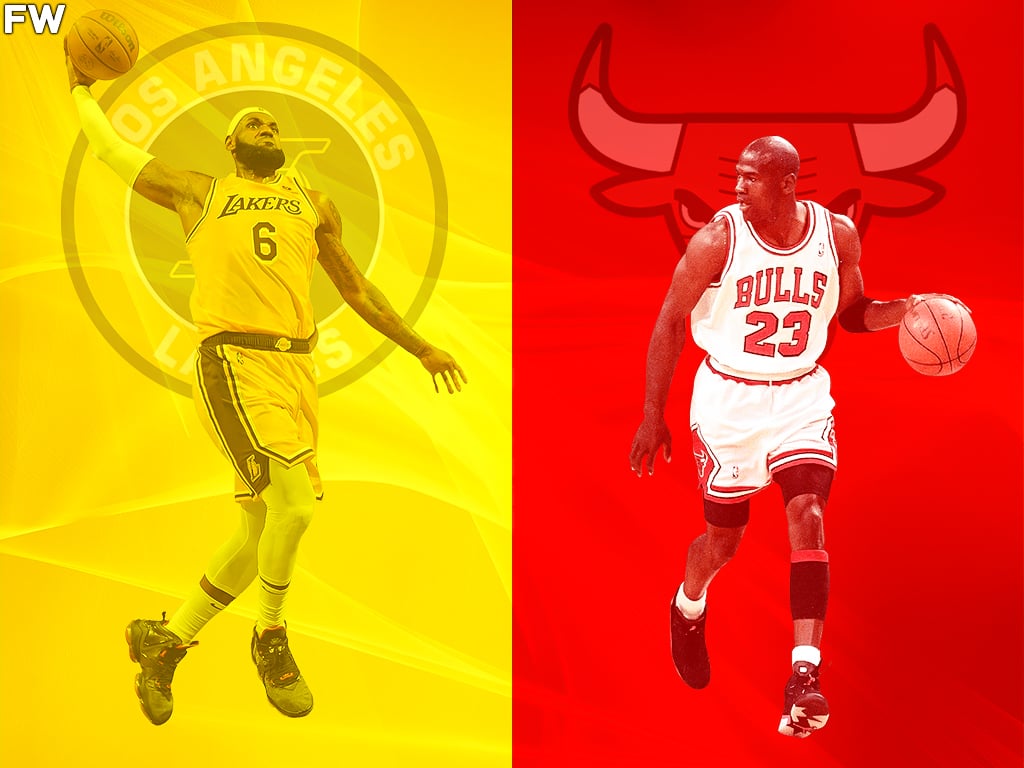
LeBron’s versatility and playmaking would pose a significant challenge for Jordan and his team. His ability to control the tempo of the game, find open teammates, and exploit mismatches could potentially create problems for Jordan defensively. Moreover, LeBron’s size and strength could wear down Jordan throughout the series, forcing him to expend energy on both ends of the floor.
On the other hand, Jordan’s scoring prowess and clutch factor would test LeBron’s defensive capabilities and mental toughness. His ability to take over games and deliver in high-pressure situations could swing the momentum in favor of his team at critical junctures. Additionally, Jordan’s defensive intensity and ability to disrupt passing lanes could disrupt LeBron’s playmaking and force turnovers, leading to easy transition buckets for his team.
Julius Erving vs. Mitch Richmond
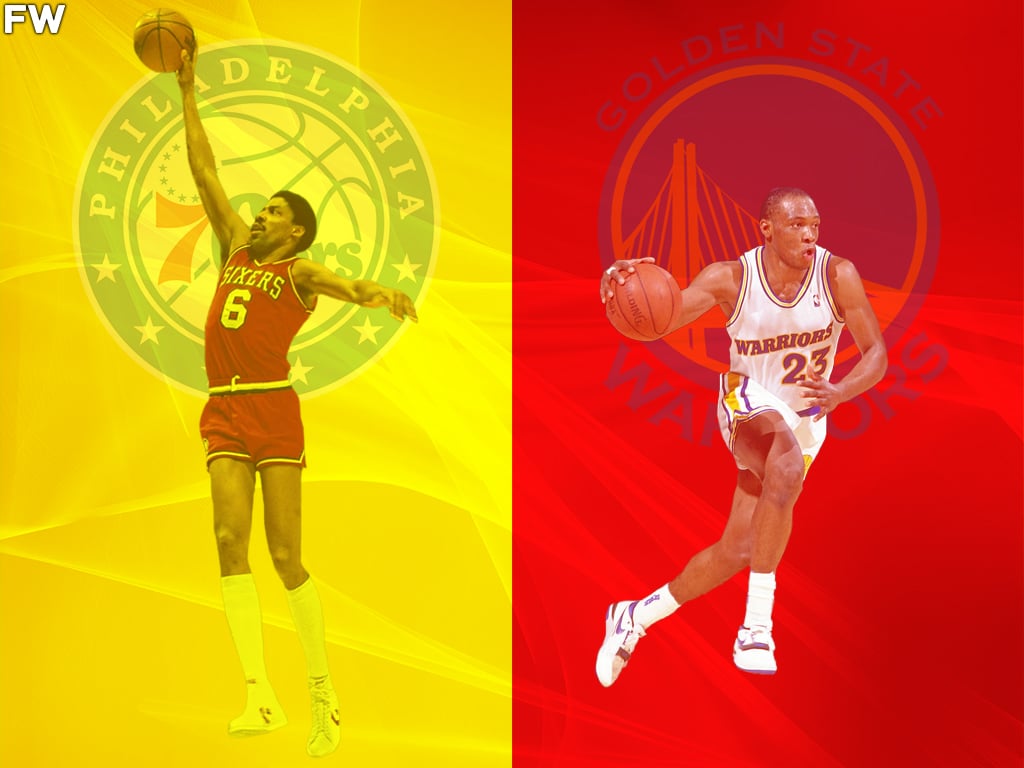
Julius Erving’s versatility and athleticism would pose a significant challenge for Richmond defensively. His ability to attack the basket, finish in traffic, and create scoring opportunities for his teammates could force Richmond to expend energy on both ends of the floor, potentially impacting his offensive output. Furthermore, Erving’s defensive prowess and ability to disrupt passing lanes could lead to turnovers and transition opportunities for his team.
Conversely, Richmond’s scoring and shooting ability would test Erving’s defensive capabilities and decision-making. His ability to stretch the floor, knock down open shots, and create his own scoring opportunities could force Erving to defend beyond the perimeter, potentially opening up driving lanes for Richmond. Additionally, Richmond’s offensive versatility could force Erving into foul trouble, limiting his aggressiveness on both ends of the floor.
Kristaps Porzingis vs. Jimmy Butler
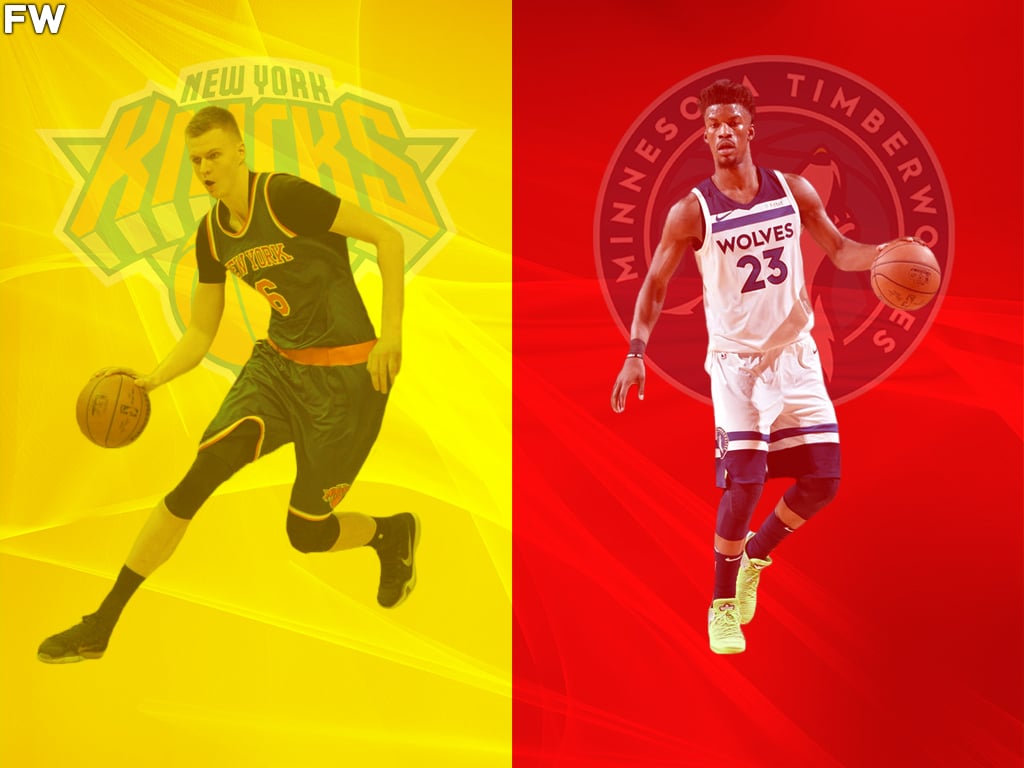
Kristaps Porzingis’ size and shooting ability would pose a significant challenge for Butler and his team defensively. His capacity to stretch the floor and force Butler to defend beyond the three-point line could create mismatches and open up opportunities for his teammates to exploit. Moreover, Porzingis’ shot-blocking and rim protection could deter Butler from attacking the basket aggressively, forcing him to settle for mid-range jumpers or contested shots.
Meanwhile, Butler’s defensive tenacity and versatility would test Porzingis’ offensive capabilities and decision-making. His ability to apply pressure on the perimeter, disrupt passing lanes, and challenge shots could force Porzingis into difficult situations and limit his offensive production. Offensively, Butler’s knack for getting to the free-throw line and creating opportunities for himself and his teammates could put Porzingis and his team’s defense in foul trouble, potentially impacting their rotations and defensive schemes.
Ben Wallace vs. Blake Griffin
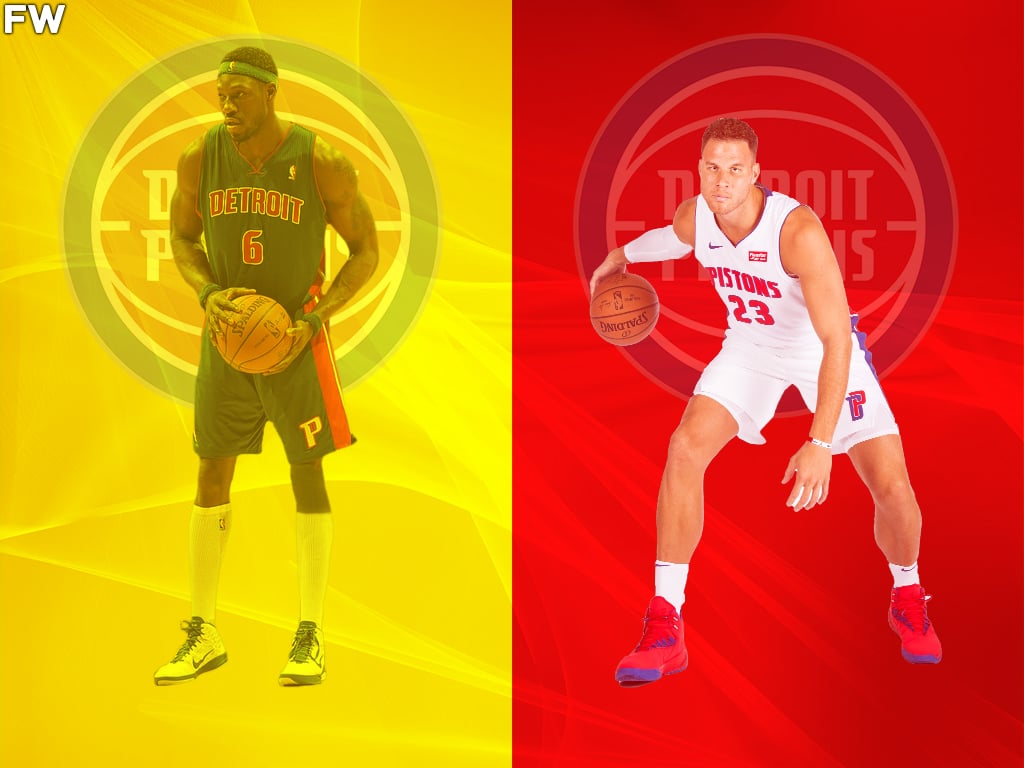
Wallace’s defensive prowess and rebounding would pose a significant challenge for Griffin and his team offensively. His ability to protect the rim, contest shots, and secure rebounds could deter Griffin from attacking the basket aggressively and force him to settle for perimeter jumpers or rely on his teammates for scoring. Moreover, Wallace’s physicality and tenacity could disrupt Griffin’s rhythm, limit his touches in the paint, and force him into difficult shot attempts.
Blake Griffin’s offensive versatility and athleticism would test Wallace’s defensive capabilities and mobility. His ability to stretch the floor, attack the basket, and make plays in transition could force Wallace to defend in space, potentially exposing his lack of lateral quickness and agility. Additionally, Griffin’s passing ability and court vision could create scoring opportunities for his teammates, forcing Wallace and his team’s defense to rotate, communicate effectively, and maintain discipline.
Bill Russell vs. Draymond Green
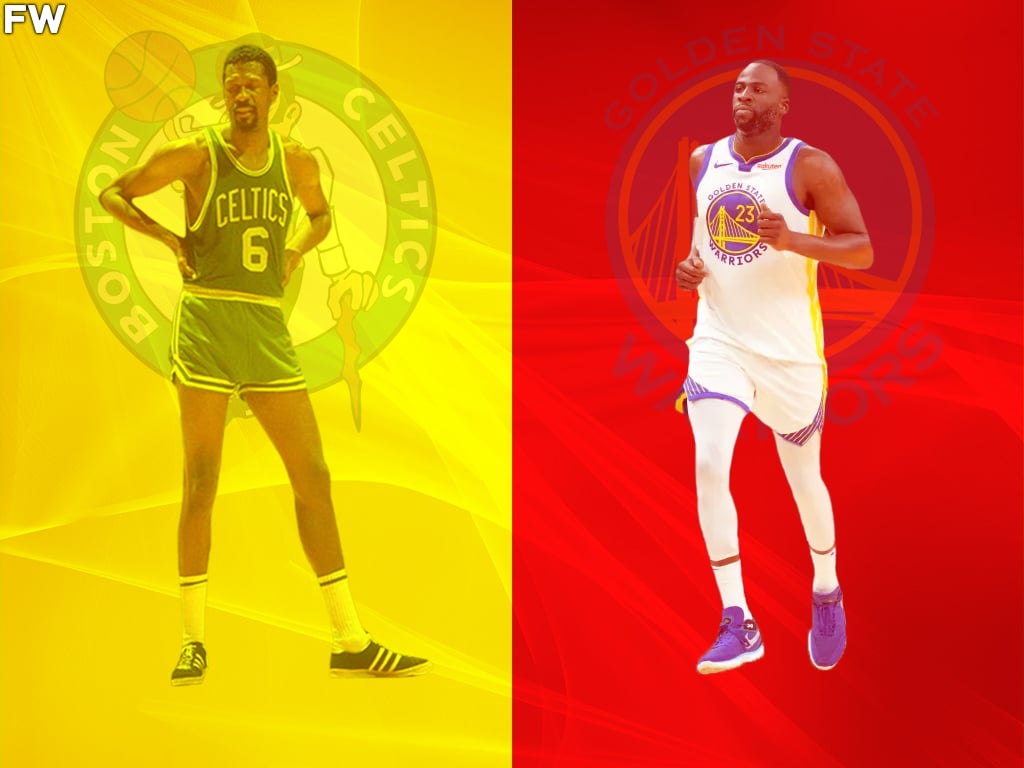
Russell’s defensive dominance and rebounding would pose a significant challenge for Green and his team offensively. His ability to protect the rim, alter shots, and control the boards could stifle the Warriors’ offensive rhythm, limit their second-chance opportunities, and force them to rely on perimeter shooting. Moreover, Russell’s championship experience and basketball IQ could provide the Celtics with a psychological edge, enabling them to execute their game plan, make timely adjustments, and capitalize on crucial possessions.
Draymond Green’s defensive versatility, playmaking, and intangibles would test Russell’s offensive capabilities and decision-making. His ability to guard multiple positions, disrupt passing lanes, and generate transition opportunities could force Russell to operate further away from the basket, rely on his teammates for scoring, and navigate through a complex defensive scheme designed to contain him. Additionally, Green’s vocal leadership, competitive spirit, and ability to elevate his game in high-stakes situations could energize the Warriors, galvanize their collective effort, and swing the momentum in their favor.
All-Time No. 6 Superteam Advantages
At the helm, LeBron James, often considered one of the greatest basketball players of all time, brings unparalleled playmaking, scoring, and basketball IQ. His ability to control the tempo, facilitate offense, and elevate his teammates would be complemented by the dynamic offensive repertoire of Julius Erving. Dr. J’s aerial acrobatics, scoring versatility, and perimeter shooting would stretch opposing defenses, creating ample spacing for driving lanes and high-percentage scoring opportunities.
In the frontcourt, Kristaps Porzingis and Bill Russell offer a unique combination of size, athleticism, and defensive tenacity. Porzingis’ ability to stretch the floor with his shooting range, protect the rim, and rebound effectively would complement Russell’s and Wallace’s shot-blocking prowess, rebounding dominance, and championship pedigree. Together, they would anchor a stifling defense capable of disrupting opposing offenses, securing rebounds, and igniting fast breaks.
All-Time No. 23 Superteam Advantages
Assembling an All-Time Superteam around the iconic No. 23 jersey symbolizes excellence, dominance, and greatness across basketball generations. Players wearing this number have been synonymous with unparalleled scoring ability, showcasing versatility from explosive drives to long-range three-pointers. Historically, No. 23 players have risen to high-pressure occasions, delivering clutch shots and pivotal plays, instilling confidence, and elevating team performance in critical moments.
Beyond their offensive prowess, many No. 23 players have distinguished themselves as defensive stalwarts and vocal leaders, fostering a culture of resilience, unity, and championship aspiration. Their defensive tenacity and leadership set the tone for the team, translating into disruptive defense, fast-break opportunities, and a dictating tempo. Furthermore, the diverse positions represented by No. 23 players offer a balanced and adaptable roster, capable of executing versatile strategies and making timely adjustments.
Who Will Win This Matchup In A 7-Game Series?
The All-Time No. 6 Superteam starts the series with a strong offensive display. LeBron James leads the charge with 35 points and 10 assists, while Julius Erving contributes 28 points. Kristaps Porzingis and Ben Wallace control the paint, combining for 8 blocks. On the other side, Michael Jordan showcases his scoring prowess with 40 points, and Blake Griffin adds 25 points and 12 rebounds. Despite the efforts from the No. 23 Superteam, the No. 6 Superteam’s balanced attack secures a Game 1 victory.
The All-Time No. 23 Superteam responds in Game 2 with a dominant defensive effort. Draymond Green’s defensive versatility disrupts the No. 6 Superteam’s offense, while Jordan continues his scoring tear with 45 points. Mitch Richmond provides valuable scoring off the bench with 20 points, and Jimmy Butler’s all-around game contributes to the team’s success. Despite another strong performance from LeBron (38 points, 9 rebounds, 8 assists), the No. 6 Superteam falls short as the No. 23 Superteam evens the series.
The series shifts to the No. 23 Superteam’s home court, and they capitalize on the home-court advantage. Jordan delivers a vintage performance with 50 points, supported by Griffin’s 28 points and Green’s defensive intensity. Butler’s leadership and playmaking seal the victory for the No. 23 Superteam. Despite a 40-point effort from LeBron and a double-double from Erving, the No. 6 Superteam struggles to contain the No. 23 Superteam’s offensive firepower.
Facing a pivotal Game 4, the All-Time No. 6 Superteam responds with a balanced offensive attack. LeBron leads the way with 35 points, 12 assists, and 10 rebounds, securing a triple-double. Erving and Porzingis contribute 25 and 22 points respectively, while Wallace’s rim protection stifles the No. 23 Superteam’s inside scoring. Despite a 42-point effort from Jordan and a solid performance from Butler, the No. 6 Superteam evens the series with a crucial road victory.
Returning home for Game 5, the No. 23 Superteam leans on their home-court advantage and delivers a statement win. Jordan continues his scoring spree with 48 points, Griffin adds a double-double with 30 points and 12 rebounds, and Green’s all-around contributions fuel the team’s success. Butler’s timely plays and Richmond’s scoring off the bench ensure a balanced team effort. Despite LeBron’s 45-point outburst, the No. 6 Superteam struggles defensively, allowing the No. 23 Superteam to regain the series lead.
Facing elimination on their home court, the All-Time No. 6 Superteam delivers a gritty and determined performance. LeBron puts on a masterclass with 50 points, 15 assists, and 10 rebounds, while Erving and Porzingis chip in with 28 and 20 points respectively. The No. 6 Superteam’s balanced scoring and tenacious defense hold Jordan and the No. 23 Superteam in check, forcing a decisive Game 7.
In a winner-takes-all Game 7, both teams leave everything on the floor. LeBron and Jordan engage in an epic scoring duel, with LeBron pouring in 42 points and Jordan responding with 40 points of his own. Griffin’s inside presence and Green’s defensive intensity make crucial impacts for the No. 23 Superteam, while Erving and Porzingis provide valuable support for the No. 6 Superteam.
In the final seconds, with the game tied, Jordan finds an open Richmond for a game-winning mid-range jumper as time expires, sealing the victory for the All-Time No. 23 Superteam in a thrilling Game 7 showdown.
Final Result: All-Time No. 23 Superteam vs. All-Time No. 6 Superteam 4-3
Finals MVP: Michael Jordan

